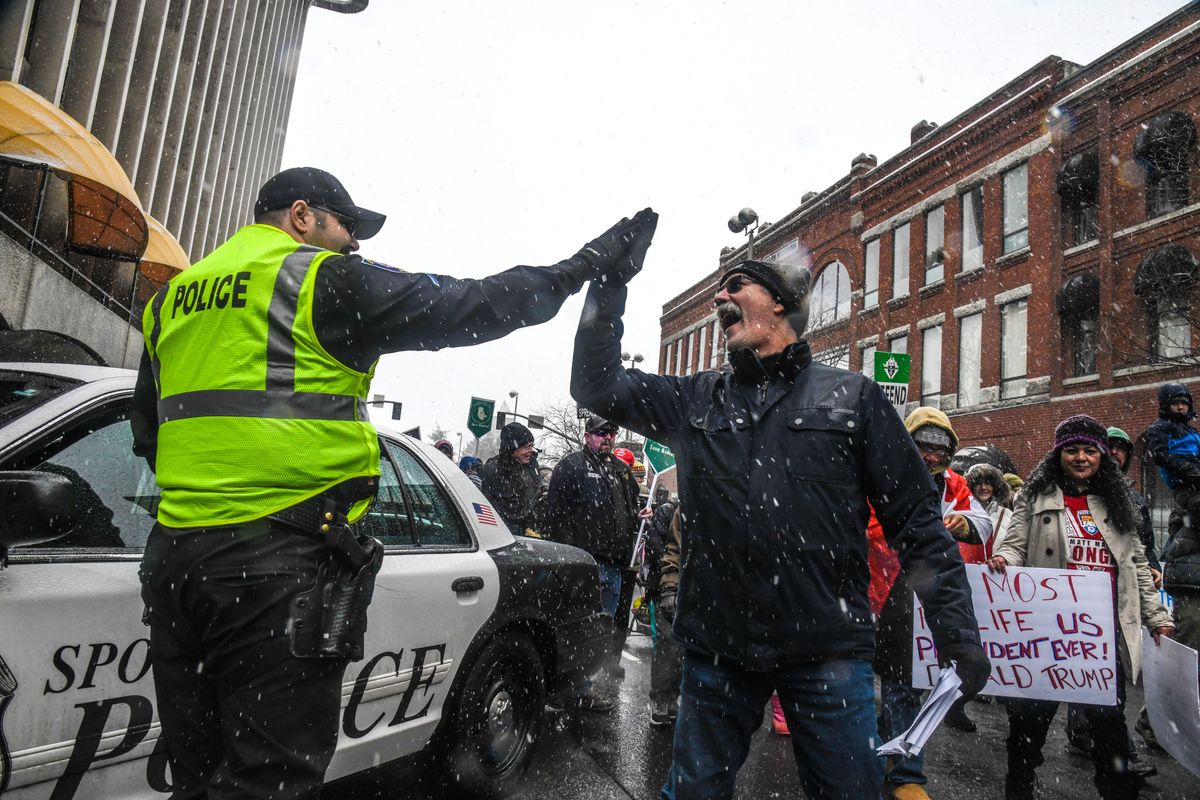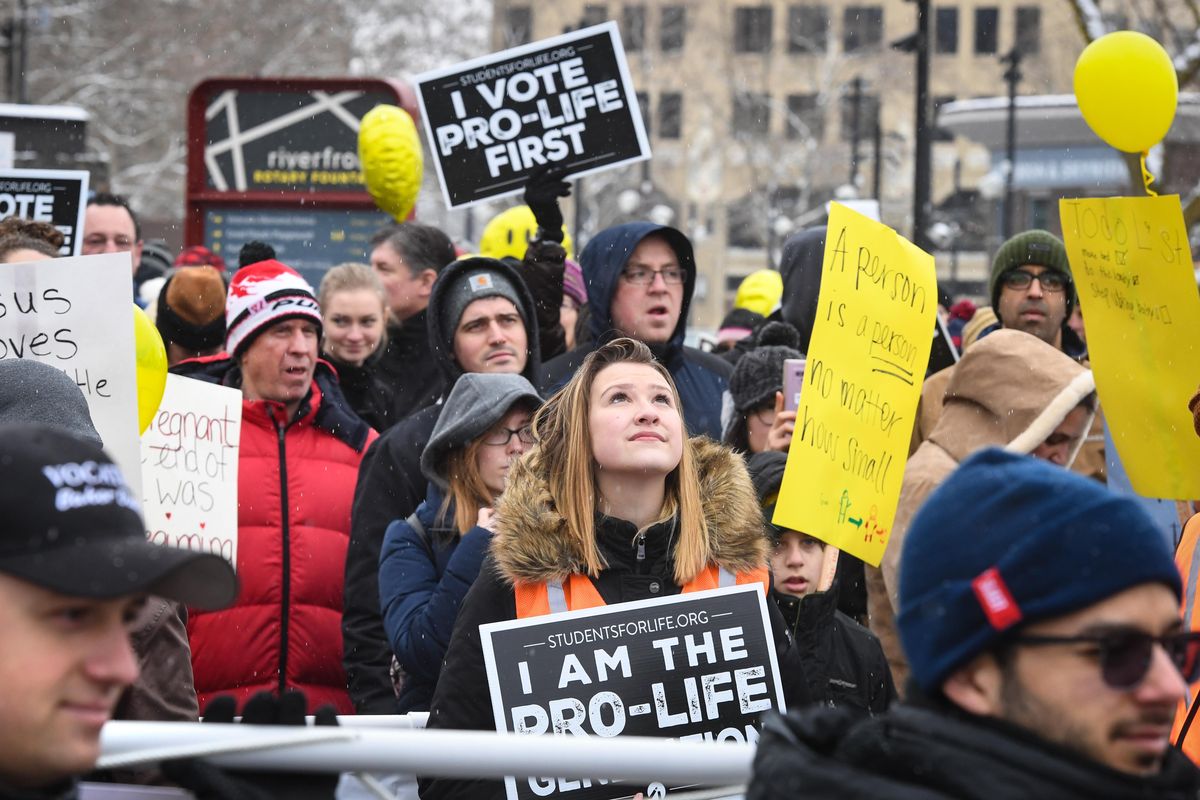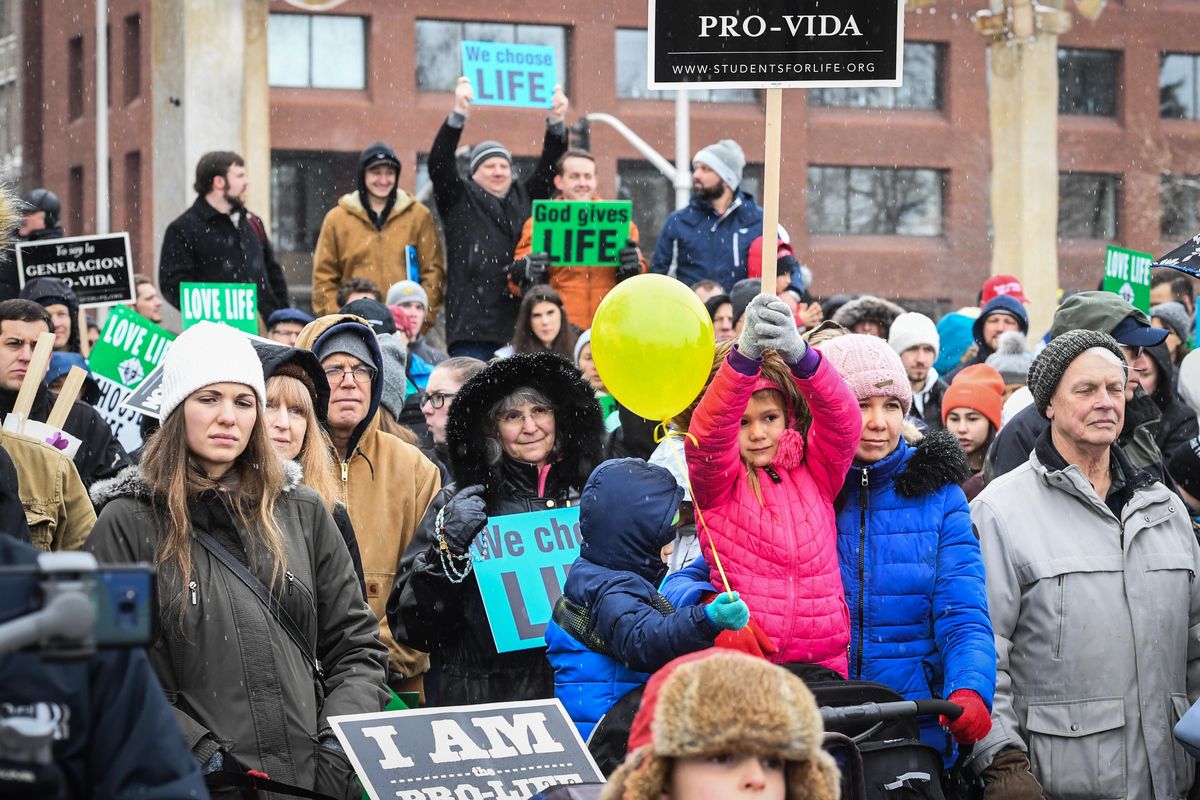‘We are all here because life is sacred’: Anti-abortion activists fill downtown Spokane streets during Walk for Life

People filled downtown Spokane streets for Saturday’s annual anti-abortion Walk for Life Northwest despite cold temperatures and falling snow.
Spokane Police Department Sgt. John Gately estimated around 1,000 people took part in the Walk for Life – about the same number who showed up for the Women’s March that followed soon after, along a similar route.
The Walk for Life began at 11 a.m. with an information fair featuring groups such as the Church at Planned Parenthood and the Jonah Project set up under a tent. Speakers began addressing the crowd at noon.
The free coffee, hot chocolate and hand warmers quickly ran out as people gathered in the increasingly heavy snow. Bishop Thomas Daly of the Catholic Diocese of Spokane commended people for coming out in the inclement weather.
“If the weather was better, it wouldn’t be much of a sacrifice,” he said.
Daly said he was happy to see so many people at the event.
“We help develop a culture of life,” he said. “It unites people of different faiths and different ages.”
Event organizer Charlotte Oliva said the United States has distanced itself from God, which allowed the government to legalize abortion. Legal is not the same as moral, she said.
“We are all here because life is sacred,” she said. “We must protect it.”
Aunna Isakson, 19, of Spokane, lifts her eyes upward during the beginning moment of the Walk for Life Northwest rally on Saturday in Riverfront Park. (Dan Pelle / The Spokesman-Review)Buy a print of this photo
Featured speaker Ron Hauenstein, founder of the Spokane Fatherhood Initiative, spoke about the important roles fathers have to play in the lives of their children. His organization offers fatherhood training programs for men. Fatherless children are increasingly likely to struggle with issues like drug abuse and criminal behavior, he said.
When he grew up in Reardan in the 1960s, the two-parent nuclear family was still the norm – but it’s not anymore, he said.
“Everyone had a mom and a dad,” he said. “In the course of my lifetime, a sea change has swamped the nuclear family.”
Hauenstein talked about his own experience with abortion, which happened when he was 18. He came home on a visit from college one day and his mother announced his 14-year-old sister was pregnant and she wanted his sister to keep the baby. Their father, however, wanted his sister to get an abortion.
Hauenstein said he talked to his sister for an hour about what she should do and she ultimately decided to keep the baby. Hauenstein introduced his nephew, who was that baby, to the gathered crowd Saturday, who responded with cheers and applause.
Many people carried pre-made signs during the march that looped through several blocks of downtown Spokane, but some made their own. Susan Johns made a sign that read, “A person’s a person no matter how small.”
Johns said she’s participated in anti-abortion marches before.
“Silence is agreement, and I’m not going to agree,” she said.
She said she doesn’t believe abortion is a good option for women.
“There are over 20 ways to prevent pregnancy,” she said. “Abortion should not be one of them. If we’re truly planning, let’s plan ahead.”
Once the egg is fertilized, it creates someone unique, she said.
“That fertilization results in one distinct individual,” she said. “Respect that.”
The march went smoothly and there were no counter-protesters in evidence near the Walk for Life, though a group of about a dozen activists carrying signs proclaiming the dangers of vaccines also gathered near the Rotary Fountain in Riverfront Park next to the anti-abortion marchers. Spokane police officers and Walk for Life organizers stopped them from joining the larger group. Walk for Life organizers who had gained a permit to use the plaza told the activists they would need to leave their signs if they wanted to join the demonstration.
Only one anti-vaccine sign could be seen during the march. The other protesters seemed to stay behind in the park.






